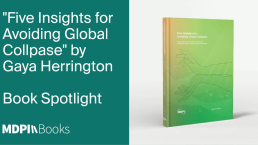
The Importance of Social Sciences, Arts and Humanities
Social Sciences, Arts and Humanities (SSAH) equip us with the knowledge to think critically and communicate clearly. Despite this, the subject area is often considered secondary to scientific disciplines. Yet faced with threats such as disinformation and AI, we must recognise how SSAH can help us navigate an ever-changing and uncertain world.
In this article, we’ll explain Social Sciences, Arts and Humanities, and their social and cultural importance; the issues that this subject field faces, such as disinformation and AI; and how its future looks.
What are Social Sciences, Arts and Humanities?
Social Sciences, Arts, and Humanities are a collective field of study that examines human society, culture, and behaviour.
The history of this academic discipline has its roots in Ancient Greek society and culture. The Greeks profoundly impacted Western civilisation, producing philosophy, poetry, and drama that explored the human condition. And from this concern with what makes us human arose the importance of ethics in society and culture.
This concern with what it means to live as a human among other humans has continued to be examined from Ancient Greece to the present.
But what is the current attitude towards studying SSAH?
Under threat
It’s no secret that the pandemic highlighted the necessity of science and STEM degrees. Effective funding and research within science enabled a vaccine to be developed quickly.
In contrast, it’s not so easy to measure the material success of arts degrees. Given their measurable effectiveness within society and culture, the sciences continue to dominate the academic landscape in terms of funding and policies.
As a result, Social Sciences, Arts and Humanities find themselves pushed to the sidelines; and with that comes funding cuts, fewer student admissions, and redundancies. In the UK alone, there have been widespread cuts to arts subjects. Post-pandemic, there’s also been increasing economic uncertainty, further compounding the strain on SSAH funding.
Yet SSAH fields play an important role in helping us make sense of today’s world.
The Importance of Social Sciences, Arts and Humanities
Despite these funding cuts, Social Sciences, Arts and Humanities fields positively impact young people’s future career prospects.
A report published in 2023 by the University of Oxford, titled “The Value of Humanities”, found that studying the humanities led to a ‘diversity of [job] destinations and strong financial returns.’ Additionally, humanities students were seen to possess the skills desirable to employees in a changing labour market.
Indeed, engaging with SSAH can help us better understand and address the unique issues we face today, such as disinformation, AI, and inequality.
Let’s take a look at some of the benefits the subject area brings to society and culture.
Aiding critical thinking
Social Sciences, Arts and Humanities fields encourage us to critically assess events happening around us. They promote the questioning of assumptions, thorough analysis, and the development of arguments.
Take the issue of fake facts and disinformation, for example. According to Manfred Max Bergman, editor of “Fighting Fake Facts“, fake news is one of the biggest threats to our critical thinking. Bergman says that ‘There has always been misinformation (fake news without harmful intent) and disinformation (fake news with harmful intent), although this has indeed increased in public discourse and academia; it has permeated just about all spheres of our lives.”
SSAH can help us observe the signs of deception in media. When information is false and spread with the intent of misleading, it’s vital that we recognise the signs and not fall into the trap of believing news stories without evidence.
This ability to pause and reflect is key to navigating opposing ideologies and opinions to come to a logical conclusion. (For example, see our article on how open access book publishing can fight misinformation).
Promoting ethics
One of the biggest challenges we face in our relationships with others is misunderstanding, which can lead to unwanted conflict.
Social Sciences, Arts and Humanities aim to foster a deeper understanding of others that we share the planet with, creating a space for the nurturing of empathy.
For example, climate change is an issue that impacts all of us. Yet we must understand how climate change will exacerbate existing social inequalities, leaving those most vulnerable in our society exposed to further distress.
Only by promoting ethics through a comprehensive and empathetic representation of inequalities and societal failings can a safer world be conceived by all of us.
Helping us navigate a changing world
There is a lingering assumption that Social Sciences, Arts and Humanities do not contribute as much as STEM subjects do to our society. Yet this simply isn’t true. If anything, SSAH are more valuable than ever in our quickly changing world.
Indeed, the arts and humanities are well-equipped to help us navigate the problems caused by the rise of artificial intelligence. AI may make our lives easier in many ways, but there are privacy and security concerns. The arts and humanities give us the introspective tools to stand back and consider the future implications of unprecedented technological advancement.
Elsewhere, the social sciences offer us clear insights into the uneven development of economic systems worldwide, enabling us to consider more sustainable methods in the fight against poverty and inequality.
The Future of Social Sciences, Arts and Humanities
There’s a disconnect between the societal and cultural value of Social Sciences, Arts and Humanities, and the economic support we give them. Despite this, certain institutions and initiatives are aiming to develop SSAH.
UK
In the UK, The British Academy created a strategic plan in 2023 that will run until 2027. The purpose of the plan is to mobilise the SSAH disciplines by funding first-class research.
Professor Julia Black, President of The British Academy, gives her justification for the support of SSAH:
Addressing the unprecedented challenges that societies around the world face requires deep understandings of cultures, histories, geographies, languages, values, institutions, economies, behaviours, laws and beliefs – all of which are the subjects of the social sciences and humanities.
EU
Elsewhere, the Horizon 2020 initiative by the European Commission focused on the ‘meaningful integration’ of social sciences and humanities in European projects and society.
The social sciences and humanities, they argue, enable us to effectively address complex global challenges, serve the well-being of EU citizens and communities, and align with the EU’s social policy objectives. They commented in particular on the value of the subject field for the green and digital transitions.
The integration across various societal projects was a success, and the methodology implemented informed the next phase of Horizon Europe. This will run until 2027, demonstrating the EU’s commitment to SSAH going forward.
MDPI Books and Social Sciences, Arts and Humanities
Clearly, Social Sciences, Arts and Humanities are vital for understanding the world around us and our position within it.
Here at MDPI Books, we recognise the importance of SSAH and their profound impact on society and culture. Only by supporting them will we experience their benefits.
In line with this belief, we aim to further support the development of Social Sciences, Arts, and Humanities publications. That’s why we’re seeking authors interested in publishing an open access book within SSAH.
MDPI Books is pleased to announce a new publishing initiative supporting researchers working within the Social Sciences, Arts, and Humanities (SSAH). Through this competition, selected book proposals will receive full editorial support and a complete waiver of Book Processing Charges (BPCs), enabling open access publication at no cost to the author(s).
Want to read more open access books within SSAH? Check out our free-to-access titles within this subject area.









